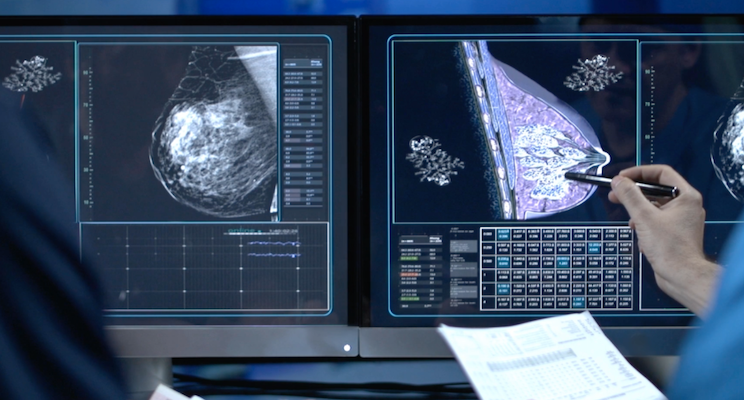
October 2, 2024 – Owkin recently announce a new partnership with AstraZeneca to develop an AI-powered tool to pre-screen for gBRCA mutations (gBRCAm) in breast cancer directly from digitized pathology slides. As part of Owkin’s ongoing collaboration with Gustave Roussy and The Centre Léon Bérard through PortrAIt, a French consortium to accelerate precision medicine through AI-enabled digital pathology, this tool aims to significantly accelerate and expand access to gBRCA testing that too many patients may not be considered for.
Dr. Thomas Clozel, MD, CEO of Owkin, said, "We are excited to collaborate with AstraZeneca to bring the benefits of AI to BRCA testing with the gBRCA Pre-Screen solution. During Breast Cancer Awareness Month, it's especially important to highlight how by streamlining the diagnostic process for determining BRCA mutation status, we can expand access to BRCA testing and identify more gBRCAm patients more rapidly. Our goal is to generate the best possible medical evidence through multiple clinical studies, making genetic testing more accessible and precise, and therefore reduce the inequity of care by allowing more patients to benefit from tailored care."
BRCA testing plays a vital role in determining an individual's risk for developing certain cancers, including breast and ovarian cancers. Knowing the BRCA status of breast cancer patients is important to help identify familial risk and guide treatment options, including responses to targeted therapies. While many professional bodies have released guidelines recommending broader BRCA testing, it is not always consistently offered to eligible individuals, and implementation varies between countries. This is causing an inadvertent exclusion of individuals who may benefit from these tests. If routinely used, this gBRCA pre-screening solution could lead to the identification of thousands more gBRCAm HR-positive early breast cancer patients in France, Germany, Italy, Spain, and the United Kingdom by 2030.
Kristina Rodnikova, Head of Global Commercial Diagnostics, Oncology at AstraZeneca, said, "On average, a woman with a BRCA1 or BRCA2 gene mutation has up to a 7 in 10 chance of being diagnosed with breast cancer by age 80. This collaboration with Owkin underscores our commitment to advancing precision medicine, helping address the unmet need and identifying patients at risk of harboring BRCA mutations to improve their outcomes.”
The typical BRCA testing journey for a patient can take several months and involve several healthcare professionals, from initial consultation to results, strongly impacting the patient's outcomes. The gBRCA pre-screening solution has the potential to significantly enhance the efficiency of BRCA mutation identification. In less than one hour, the solution could identify a patient at high risk of harboring gBRCA mutation by leveraging existing material, including H&E slides. This could greatly streamline the gBRCA testing process, allowing oncologists and genetic counsellors to accelerate the gBRCA genetic testing for high-risk patients and incorporate these genetic test results into the treatment planning process without delays.
The solution is currently in development and undergoing validation.


 December 03, 2025
December 03, 2025 








